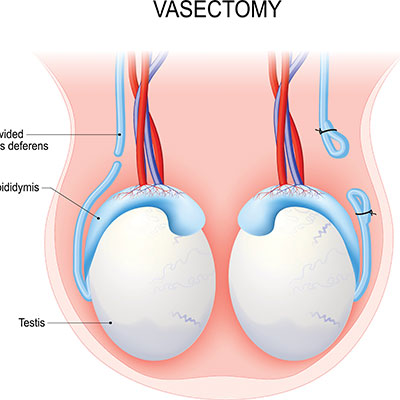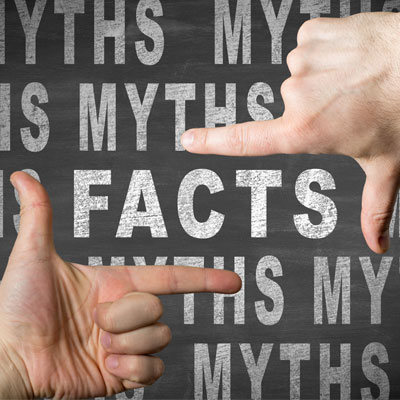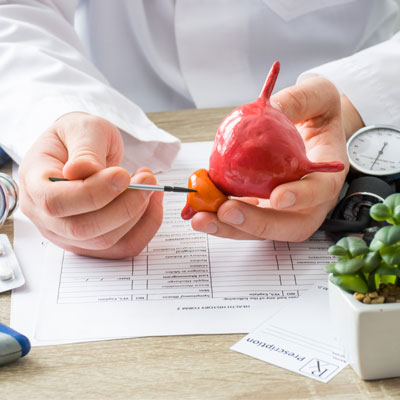Testosterone Therapy Myths and Facts
Contents
- Top 7 Testosterone Myths
- Myth 1. Testosterone Therapy is Illegal
- Myth 2. Testosterone Makes Men More Aggressive
- Myth 3. Testosterone Can Make Men Sterile
- Myth 4. Drinking Alcohol Will Not Affect My Testosterone Level
- Myth 5. Marijuana Use Lowers Your Testosterone
- Myth 6. Bald Men Have Higher Testosterone Levels
- Myth 7. A Vasectomy Can Lower Your Testosterone
- Top 10 Facts About Testosterone
- Fact 1. A Man’s Testosterone Level Drops As He Ages
- Fact 2. Testosterone Therapy is the Most Effective Way to Treat Low Testosterone
- Fact 3. You Must Have a Prescription to Obtain Testosterone
- Fact 4. Testosterone Injections Are the Preferred Form of Testosterone Therapy
- Fact 5. Testosterone Does Not Cause Hair Loss
- Fact 6. How Long Before You See Results of Testosterone Therapy
- Fact 7. Women Do Need Testosterone
- Fact 8. Testosterone Does Not Cause Heart Disease
- Fact 9. The Truth About Testosterone and Exercise
- Fact 10. The Truth About the Cost of Testosterone Therapy
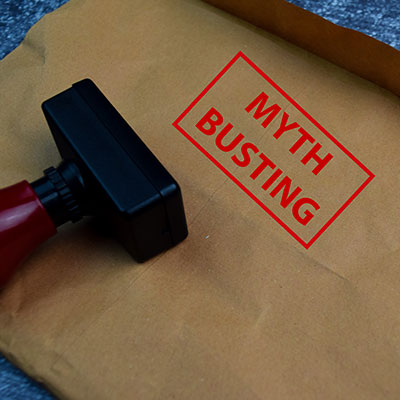
Probably the most common misconception about testosterone is that it is exclusively a “male hormone.” It is true that testosterone falls under the technical definition of an “androgen” or “male hormone,” however, women’s bodies make and need testosterone as well.
That testosterone is only for men is just one of the many myths and misunderstandings involving this vital hormone. On this page, our medical experts will dig into the top myths and the top facts you should know about testosterone if you are considering testosterone therapy.
Top 7 Testosterone Myths
Myth 1. Testosterone Therapy is Illegal
Because testosterone and similar anabolic steroids are banned in bodybuilding and other professional sports, there is a mistaken expression that taking testosterone is illegal. It is not. However, you do need a legitimate diagnosis of low testosterone and a doctor’s prescription to obtain testosterone legally. Taking any product that contains testosterone without a doctor’s prescription is indeed illegal.
Myth 2. Testosterone Makes Men More Aggressive
Many of the myths about testosterone revolve around the idea that increasing your testosterone causes increased aggression or violent behavior. However, many peer-reviewed studies published in prestigious medical and scientific journals have shown that introducing even extremely high doses of testosterone – much higher than those that would ever be used in typical testosterone replacement – does not increase hostility, anger, or aggression in men.
As far as the old and antiquated idea that violent criminals and serial killers have a naturally higher than normal level of testosterone has similarly been debunked. Most of the “research” that has been cited to “prove” such ideas were highly flawed and lacked proper peer review or other standard statistical or scientific methods.
Myth 3. Testosterone Can Make Men Sterile
There is a persistent myth that testosterone replacement can cause a man’s testicles to shrink and can make him impotent and/or sterile. This is not true. While there may be some shrinkage of the testicles when additional testosterone is first introduced (because they decrease output in response), that side effect — if it even occurs — does not last long, and the testicles rebound shortly and go back to normal, as your body adjusts to the increased level of testosterone. As far as sexual performance goes, quite the opposite is true – testosterone actually improves libido and sexual performance.
Myth 4. Drinking Alcohol Will Not Affect My Testosterone Level

To be clear, it is “heavy drinking” that has been linked to lowering your body’s ability to produce testosterone. Moderate drinking does not seem to cause a problem. Moderate alcohol consumption is usually defined as no more than one drink for women or two drinks for men in a single day.
It has also been found that heavy drinkers whose testosterone levels have been negatively impacted by alcohol quickly have their levels return to normal when they quit drinking.
Myth 5. Marijuana Use Lowers Your Testosterone
While alcohol consumption may lower your testosterone, the same is a myth when it comes to marijuana use. Medical use of marijuana is becoming approved in more and more states lately, as has recreational use. This is because much of what were once thought to be the harmful effects of marijuana have simply since been proved to be untrue.
One of these is that smoking weed can lower your testosterone level. This rumor largely was lumped in with much of the other “negative press” about cannabis use, and it was mainly driven by studies that found that the THC in marijuana could have a testosterone lowering effect in animals.
But studies on humans were far less conclusive. In fact, a study published in the world-renowned New England Journal of Medicine, conducted by Jack H. Mendelson, MD, found that there was “no relationship between any level of marijuana use and testosterone levels.” Dr. Mendelson’s study took a group of men who were “clean” (no detectable THC in their blood) and then tracked them as they “regularly” smoked marijuana over a three-week period and found that “no statistically significant changes in plasma testosterone levels were observed during and after the smoking period as compared with the pre-smoking base-line levels.”
Myth 6. Bald Men Have Higher Testosterone Levels
Another popular testosterone myth – probably started by bald men – is that baldness is a sign of virility, and therefore bald men have high testosterone levels. There is absolutely no connection between testosterone levels and typical baldness in men. Baldness in men is a matter of genetics. Men inherit common “male pattern baldness” and “crown baldness” from their mother’s side of the family and total or overall baldness from their father’s side.
Myth 7. A Vasectomy Can Lower Your Testosterone
Many men believe that having a vasectomy will lower their testosterone levels. Since testosterone is vital for fertility and sperm count, a lot of men fear that the procedure will lower both their testosterone and their sex drive. Neither is true.
This mistaken belief comes from confusing a vasectomy with castration. Castration, or removal of testicles, is done when neutering a dog or gelding a horse. But fortunately, nothing like that is done when performing a vasectomy on a man. In a vasectomy, nothing at all is removed. Sterilization is accomplished simply by cutting or tying off the tubes that allow sperm to travel from the testicles where they are produced. You will still produce sperm, but they will simply be absorbed into your body.
The testicles also produce testosterone. Since they are left completely intact and 100% functional after vasectomy, a vasectomy will have little or no impact on your testosterone level.
Top 10 Facts About Testosterone
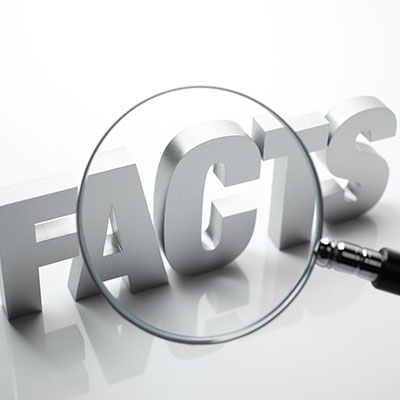
Fact 1. A Man’s Testosterone Level Drops As He Ages
As men age, testosterone levels drop. Testosterone levels peak at about the age of 20. After that, they start a steady decline. Once a man is over 35, he can expect to lose from 1% to 2% of his testosterone every year. This can lead to the signs and symptoms of age-related low testosterone, a condition also known as “andropause,” or sometimes simply referred to as “Low T.”
Fact 2. Testosterone Therapy is the Most Effective Way to Treat Low Testosterone
Testosterone replacement therapy is the safest and most effective way to treat men suffering from age-related testosterone decline.
For men with low testosterone, there is no “myth” about the benefits of testosterone therapy. Testosterone therapy truthfully can:
- Increase your sex drive and sexual performance
- Increase your energy
- Help you to build lean muscle
- Improve your ability to burn fat
- Improve mood
- Improve heart health
- Improve cognition
Fact 3. You Must Have a Prescription to Obtain Testosterone
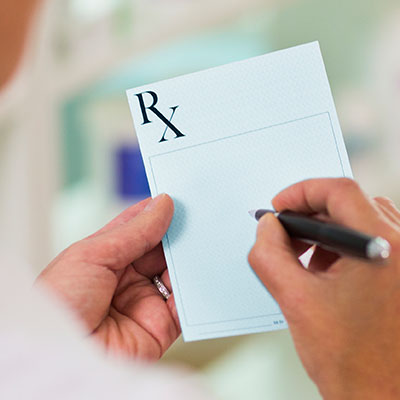
Real testosterone therapy is a prescription medication that can only be obtained legally after a legitimate diagnosis of low testosterone and a prescription from your doctor. Buying testosterone injections on the “black market” and using it illicitly without a doctor’s supervision is not only illegal, but it can also be hazardous to your health.
Fact 4. Testosterone Injections Are the Preferred Form of Testosterone Therapy
Testosterone therapy can be given in several different forms. Our doctors believe that testosterone injections are the safest and most effective way to administer testosterone. Testosterone injections are given into muscles. Testosterone therapy given as intramuscular injections is more easily and rapidly absorbed into the bloodstream than most other ways to take testosterone.
Also, should you need to change your dosage over the course of your testosterone therapy for any reason, there are more dosages and different formulations of testosterone injections available than there are for any other form of T-therapy such as gels or skin patches.
Fact 5. Testosterone Does Not Cause Hair Loss
A common fear that sometimes keeps people from taking testosterone is that they think that it can make you go bald. Just as with many of the other myths mentioned here, this has grown out of the idea that, in some cases, hair loss is a possible side effect of testosterone. However, the fact of the matter is, that kind of hair loss usually happens in men that already have a genetic predisposition toward male pattern baldness.
Basically, it’s not the amount of testosterone you do or do not have that causes baldness; it’s your sensitivity of your hair follicles to another form of testosterone, called DHT, and that sensitivity is determined by your genes. So, again, with careful dosing and prescribing, hair loss is usually not a problem with most testosterone therapy patients.
Fact 6. How Long Before You See Results of Testosterone Therapy
One very important fact about testosterone therapy you need to understand is that you will not see overnight results. Your prescription for testosterone therapy will be designed for your body to react to the increases in testosterone slowly over time. The life-changing results of testosterone therapy will impact four major areas of your life:
- Physical strength
- Sexual performance
- Mental acuity
- Emotional wellbeing
Your results of testosterone therapy will benefit you in each of these areas of life.
Since testosterone therapy is prescribed on a very individualized basis, results will vary. However, many patients say they start to see improvements in strength and energy in as little as two weeks of being on testosterone replacement. Many patients notice emotional or mood changes earlier than major physical changes. In as little as 3 to 4 weeks on testosterone therapy, men report feeling:
- Calmer
- Less anxious
- Less depressed
- Less irritable
- Happier and less stressed in general
Fact 7. Women Do Need Testosterone

Fact 8. Testosterone Does Not Cause Heart Disease
Despite a lot of recent evidence to the contrary, a myth about testosterone that refuses to die is that testosterone therapy could increase the risk of cardiovascular disease. Not only have there been numerous studies that have now refuted this common myth, but the latest research also suggests that testosterone therapy can actually decrease the risk of stroke or heart attack. A recent study of nearly 90,000 men, published in the Trusted sourceNormalization of testosterone level is associated with reduced incidence of myocardial infarction and mortality in menPubMedGo to sourceEuropean Heart Journal , found that giving testosterone to men who have suffered a heart attack helped to prevent a second heart attack or other cardiovascular issues.
Fact 9. The Truth About Testosterone and Exercise
One of the most common myths about testosterone is that if you use it, you will instantly or very quickly develop the strength of an Olympic weightlifter and the physique of a champion bodybuilder.
It is true that testosterone has “anabolic” properties, meaning that it does help you to build muscle. It is also true that almost all professional and amateur sports organizations have classified testosterone as a “performance-enhancing drug.”
However, the truth is testosterone, when used properly, can only help you to build the kind of lean muscle that is healthy for your body and personal fitness goals. When you see someone that seems to be “roided-out” and bulked up with muscle beyond normal human proportions, it is probably because he has been abusing testosterone. Testosterone therapy, when prescribed for you by a doctor, and taken correctly, will not cause you men – or women – to unnaturally “bulk up.”
Testosterone therapy, when properly prescribed, however, will help you to build lean muscle, burn fat, increase your exercise capacity, and get more out of your workouts.
Fact 10. The Truth About the Cost of Testosterone Therapy
Some men avoid testosterone therapy because they think it is too costly. The fact of the matter is testosterone therapy may be more affordable than you think. A typical male patient should expect to pay anywhere from $500 –$1500 per month for testosterone therapy. A note about the cost of testosterone treatment: keep in mind, like in any purchase, you get what you pay for. You should not cut corners on your health and choose a testosterone clinic strictly because they may offer the lowest cost for testosterone therapy.
Now that you know a lot more about the myths and the facts about testosterone, why not take a minute to contact us and learn more about the many other life-changing benefits of testosterone therapy.
FAQ
1. What is Testosterone Therapy?
Testosterone replacement therapy is a doctor-prescribed, clinically proven method to treat men and women with low testosterone. Despite the important role that testosterone plays in strength, energy, vitality, and sexual wellness, testosterone levels dwindle as you age. This can result in low testosterone, a condition sometimes simply referred to as "Low T."
Testosterone replacement therapy has been shown to have many life-changing benefits for men and women suffering from Low T due to age-related testosterone decline.
2. Who Should Consider Testosterone Therapy?
Any man who is between the ages of 35 and 65 and may not be feeling as strong and vital as they would like to should consider testosterone replacement therapy. However, you should watch for these signs of low testosterone. The symptoms of low testosterone include:
- Decrease in libido or sex drive
- An overall feeling of reduced virility and vigor
- Changes in mood
- Erectile dysfunction
- Loss of stamina
- Loss of muscle tone
- Weight gain
- Loss of memory and other cognitive issues
3. What Kind of Doctor Prescribes Testosterone Therapy?
Any medical doctor who is legally licensed to write a prescription can give you a prescription for testosterone therapy. However, it is best to seek your testosterone treatment from a practitioner or clinic that specializes in hormone replacement therapy (HRT) for men. Testosterone is not the only critical hormone that declines as you age. If you are suffering from the symptoms of low testosterone, chances are you may have a growth hormone deficiency as well.
4. What to Expect From Testosterone Therapy?
You can expect many benefits from testosterone therapy. One of the first noticeable signs of low testosterone is a drop in libido or sex drive. This may or may not be accompanied by erectile dysfunction. Conversely, one of the first and most satisfying benefits reported by most men who start testosterone therapy is an increased sex drive and improved sexual performance. Besides improving your love life, some of the other results you can expect from testosterone therapy for men include:
- An increased ability to build lean muscle and increased muscle mass - This is often also accompanied by fat loss because testosterone not only improves your ability to burn fat but, as you build more muscle mass, your metabolism heats up even further.
- Increased energy levels - Another primary complaint of men with low testosterone is low energy or chronic fatigue. Testosterone therapy improves your cell's ability to turn calories into energy.
- Improved moods and cognition – Testosterone therapy also helps to return men to a more even emotional keel and can also fight depression, anxiety, and other mood swings. Testosterone therapy can also help to improve memory, focus, and your ability to complete complex cognitive tasks.


